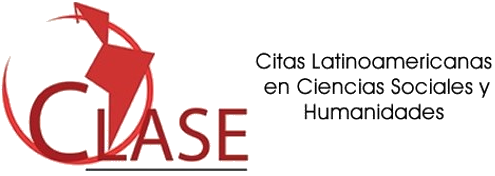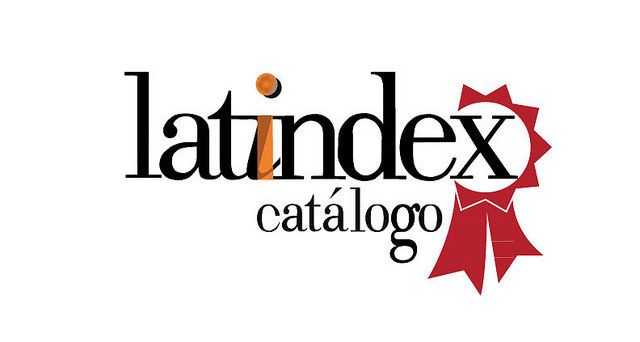Beyond decoloniality: a discussion of some key concepts
DOI:
https://doi.org/10.29340/en.v6n12.332Keywords:
decoloniality, race, indigenous movements, affirmative action, other epistemologies, cultural mixing, interculturalityAbstract
The objective of this essay is to review some key concepts in order to engage in a discussion between the theoretical proposals of decoloaniality and universalism. To this end, the author takes up some empirical cases to exemplify and support his thesis based on the fact that indigenous and Afro-descendant movements are as important as democratizing movements within and outside their fields of action.
Downloads
References
Abercrombie, Thomas (1992). “La fiesta del carnaval postcolonial en Oruro: clase, etnicidad y nacionalismo
en la danza folklórica”, Revista Andina, 10(2), pp. 279-352.
Alonso, Jorge (2006). “La otra campaña zapatista”, Asian Journal of Latin American Studies, 2(19), pp. 5-36.
Disponible en: http://www.ajlas.org/v2006/paper/2006vol19no201.pdf (consultado el 26 de junio
de 2023).
Araujo, Victor (2022). “Pentecostalismo e antipetismo nas eleições presidenciais brasileiras”, Latin DOI: https://doi.org/10.1017/lar.2022.29
American Research Review, 57(3), pp. 517-535. doi:10.1017/lar.2022.29 DOI: https://doi.org/10.1017/lar.2022.29
Arendt, Hannah (1977). “Public Rights and Private Interests”, en James Gutmann y Michael Mooney (eds.). DOI: https://doi.org/10.7312/moon92826-011
Small Comforts for Hard Times: Humanists on Public Policy. Nueva York: Columbia University Press.
Bacigalupo, Ana Mariella (2004). “Shamans’ Pragmatic Gendered Negotiations with Mapuche Resistance
Movements and Chilean Political Authorities”, Identities, 11(4), pp. 501-541.
Bloch, Maurice (2004). “Ritual and Deference”, en James Laidlaw y Harvey Whitehouse (coords.). Ritual
and Memory: Toward a Comparative Anthropology of Religion. Lanham: Altamira Press/Rowman
and Littlefield, pp. 65-78.
Boyer, Véronique (2014). “Misnaming Social Conflict: ‘Identity’, Land and Family Histories in a Quilombola DOI: https://doi.org/10.1017/S0022216X14000728
Community in the Brazilian Amazon”, Journal of Latin American Studies, 46(3), pp. 527-555.
— (2016). “The Demand for Recognition and Access to Citizenship: Ethnic Labelling as a Driver of
Territorial Restructuring in Brazil”, en David Lehmann (ed.). The Crisis of Multiculturalism in Latin
America. Nueva York: Palgrave Macmillan, pp. 155-178.
— (2019). “The Language of Ethnicity: Ethno-legal Identifications as Mechanisms of Visibilization
(Brazilian Amazonia)”, European Journal of Sociology/Archives Européennes de Sociologie, 60(2), pp.
-170. doi:10.1017/S0003975619000092 DOI: https://doi.org/10.1017/S0003975619000092
— (2022). Le puzzle amazonien: Positionnements ethniques et mobilisations sociales. París: CNRS
Editions.
— (2023). The Amazonian Puzzle: Shifting Ethnicities in Anthropological Perspective. Nueva York:
Berghahn.
Brunegger, Sandra (2011). “Legal Imaginaries: Recognizing Indigenous Law in Colombia”, Studies in Law, DOI: https://doi.org/10.1108/S1059-4337(2011)0000055007
Politics and Society, (55), pp. 77-100. https://doi.org/10.1108/S1059-4337(2011)0000055007 DOI: https://doi.org/10.1108/S1059-4337(2011)0000055007
Campo Palacios, Daniel Felipe (2020). Los desafíos del gobierno propio: poder e identidad étnica nasa en el
norte del Cauca, Colombia. Puebla: Benemérita Universidad Autónoma de Puebla.
Chambers, Paul (2020). “Epistemology and Domination: Problems with the Coloniality of Knowledge Thesis DOI: https://doi.org/10.1590/dados.2020.63.4.221
in Latin American Decolonial Theory”, Dados, 63(4), pp. 1-36.
Cuyul Soto, Andrés (2013). “Salud intercultural y la patrimonialización de la salud mapuche en Chile”, en
Héctor Nahuelpan Moreno et al. (eds.). Historia, colonialismo y resistencia desde el país mapuche
(Ta iñ fijke xipa rakizuameluwün). Temuco: Ediciones Comunidad de Historia Mapuche, pp. 255-275.
De Freitas, Jefferson, Poema Eurístenes Portela, João Feres Júnior, Águida Bessa y Vivian Nascimento
(2020). “Políticas de ação afirmativa nas universidades federais e estaduais (2013-2018)”.
Levantamento das politicas de ação afirmativa (2013-2018). Recuperado de:
http://gemaa.iesp.uerj.br/wp-content/uploads/2020/06/Levantamento-final-para-site.pdf
(consultado el 26 de junio de 2023).
De Sousa Santos, Boaventura (2006). The Rise of the Global Left: The World Social Forum and Beyond. DOI: https://doi.org/10.5040/9781350223516
Londres: Zed.
— (2010). Descolonizar el saber. Reinventar el poder. Montevideo: Trilce.
— (n.d.). “Los derechos humanos: una frágil hegemonía”, en Construyendo las epistemologías del Sur:
para un pensamiento alternativo de alternativas, vol. II. Consejo Latinoamericano de Ciencias
Sociales (CLACSO), pp. 209-222.
Dietz, Gunther (2012). “Diversity Regimes Beyond Multiculturalism? A Reflexive Ethnography of DOI: https://doi.org/10.1080/17442222.2012.686334
Intercultural Higher Education in Veracruz, Mexico”, Latin American and Caribbean Ethnic Studies,
(2),
pp. 173-200.
— (2020). “Between Community and University: A Collaborative Ethnography with Young Graduates
from a Mexican Intercultural University”, AIBR. Revista de Antropología Iberoamericana, 15(2), pp.
-299. Disponible en https://dialnet.unirioja.es/servlet/articulo?codigo=7599748 (consultado el
de junio de 2023).
— y Laura Selene Mateos Cortés (2011). Interculturalidad y educación intercultural en México: un
análisis de los discursos nacionales e internacionales en su impacto en los modelos educativos
mexicanos. México: SEP/CGEIB.
— (2019). “Las universidades interculturales en México, logros y retos de un nuevo subsistema de
educación superior”, Estudios sobre las Culturas Contemporáneas, 25(49), pp. 163-190. Disponible
en:
https://www.culturascontemporaneas.com/culturascontemporaneas/contenidos/08_Universidade
s_Interculturales.pdf (consultado el 26 de junio de 2023).
Dussel, Enrique (ed.) (1983-1994). Historia general de la Iglesia en América Latina (11 vols.). Salamanca: DOI: https://doi.org/10.11606/issn.2316-9141.v0i115p61-87
CEHILA/Ediciones Sígueme.
— (1974). Historia de la Iglesia en América Latina: coloniaje y liberación (1492-1973). Barcelona: Nova
Terra.
Eisenstadt, Schmuel (2000). “Multiple Modernities”, Daedalus, 129(1), pp. 1-29. DOI: https://doi.org/10.1177/03058298000290031201
French, Jan Hoffman (2009). Legalizing Identities: Becoming Black or Indian in Brazil’s Northeast. Chapel DOI: https://doi.org/10.5149/9780807889886_french
Hill: University of North Carolina Press.
Fry, Peter (2000). “Politics, Nationality and the Meanings of ‘Race’ in Brazil”, Daedalus, 129(2), pp. 83-118.
García Canclini, Néstor (2001). Culturas híbridas: estrategias para entrar y salir de la modernidad. Buenos
Aires: Paidós.
Goodale, Mark (2019). A Revolution in Fragments: Traversing Scales of Justice, Ideology, and Practice in DOI: https://doi.org/10.1215/9781478007234
Bolivia. Durham: Duke University Press.
Grisaffi, Thomas (2019). Coca Yes, Cocaine No: How Bolivia’s Coca Growers Reshaped Democracy. Durham: DOI: https://doi.org/10.1515/9781478004332
Duke University Press.
Grosfoguel, Ramón (2008). “Hacia un pluri-versalismo transmoderno decolonial”, Tabula Rasa (9), pp. 199- DOI: https://doi.org/10.25058/20112742.345
Gutiérrez Aguilar, Raquel (2008). Los ritmos del pachakuti: movilización y levantamiento popular-indígena
en Bolivia (2000-2005). Buenos Aires: Tinta Limón.
Harris, Olivia (2000). “The Mythological Figure of the Earth Mother”, en Olivia Harris (ed.). To Make the
Earth Bear Fruit: Essays on Fertility, Work and Gender in Highland Bolivia. Londres: Institute of Latin
American Studies, pp. 201-219.
Harvey, Neil (2016). “Practicing Autonomy: Zapatismo and Decolonial Liberation”, Latin American and DOI: https://doi.org/10.1080/17442222.2015.1094872
Caribbean Ethnic Studies, 11(1), pp. 1-24.
Hernández Castillo, Aida Rosalva (2014). “Entre el etnocentrismo feminista y el esencialismo étnico: las
mujeres indígenas y sus demandas de género”, en Uderkys Espinosa Miñoso, Diana Gómez Correal
y Karina Ochoa Muñoz (coords.). Tejiendo de otro modo: feminismo, epistemología y apuestas
coloniales en Abya Yala. Popayán: Editorial Universidad del Cauca, pp. 279-94.
Hernández Castillo, Rosalva Aida (2016). “Indigenous Injustices: New Spaces for Struggle for Women”, en
Rosalva Aída Hernández Castillo (ed.). Multiple Injustices: Indigenous Women, Law and Political
Struggle in Latin America. Tucson: Arizona University Press, pp. 123-62.
Instituto Nacional de Estadísticas (2005). Estadísticas sociales de los pueblos indígenas en Chile. Censo.
Kahneman, Daniel (2012). Pensar rápido, pensar despacio (trad. por Joaquín Chamorro Mielke). Barcelona:
Debate.
Lehmann, David (2015). “Convergencias y divergencias en la educación superior intercultural en México”, DOI: https://doi.org/10.1016/S0185-1918(15)72133-1
Revista Mexicana de Ciencias Políticas y Sociales, 60(223), pp. 133-170.
— (2018). The Prism of Race: The Politics and Ideology of Affirmative Action in Brazil. Ann Arbor:
Michigan University Press.
Lévi-Strauss, Claude (1964). El pensamiento salvaje. México: FCE.
Levitt, Peggy y Sally Engle Merry (2009). “Vernacularization on the Ground: Local Uses of Global Women’s
Rights in Peru, China, India and the United States”, Global Networks, 9(4), pp. 441-461.
Leyva Solano, Xochitl y Gabriel Ascensio Franco (1996). Lacandonia al filo del agua. México: CIESAS/UNAM/FCE.
Merry, Sally E. (1988). “Legal Pluralism”, Law and Society Review, 22, DOI: https://doi.org/10.2307/3053638
pp. 869-996.
— (2012). “Legal Pluralism and Legal Culture”, en Brian Tamanaha, Caroline Sage y Michael Woolcock
(eds.). Legal Pluralism and Development: Scholars and Practitioners in Dialogue. Cambridge:
Cambridge University Press, pp. 66-82
Molinié, Antoinette (2005). “La transfiguración eucarística de un glaciar: una construcción andina del DOI: https://doi.org/10.4000/books.ifea.4834
Corpus Christi”, en Antoinette Molinié (ed.). Etnografías de Cuzco. Cuzco: Institut Français d’Études
Andines, pp. 69-87, doi :10.4000/books.ifea.4834
Morales Bermúdez, Jesús (2005). Entre ásperos caminos llanos: la diócesis de San Cristóbal de las Casas
-1995. México y San Cristóbal: UNICACH/COSICH/COCYTECH/Casa Juan Pablos.
Murra, John Victor (1972). “El control vertical de un máximo de pisos ecológicos en la economía de las
sociedades andinas”, en John Victor Murra (coord.). Formaciones económicas y políticas del mundo
andino. Lima: Instituto de Estudios Peruanos, pp. 59-115.
Passerin d’Entrèves, Maurizio y Tatjana Tömmel (2022). “Hannah Arendt”, en Edward N. Zalta y Uri
Nodelman (eds.). The Stanford Encyclopedia of Philosophy. URL =
<https://plato.stanford.edu/archives/fall2022/entries/arendt/>.
Postero, Nancy (2017). The Indigenous State: Race, Politics, and Performance in Plurinational Bolivia. DOI: https://doi.org/10.1525/luminos.31
Berkeley: University of California Press.
Quijano, Aníbal (2014). “Colonialidad del poder, eurocentrismo y América Latina”, en Cuestiones y
horizontes: de la dependencia histórico-estructural a la colonialidad/descolonialidad del poder.
Buenos Aires: CLACSO,
pp. 778-832. Recuperado de: http://biblioteca.clacso.edu.ar/clacso/se/20140507042402/eje3-8.pdf
(consultado el 28 de junio de 2023).
Rappaport, Joanne (2008). Utopías interculturales: intelectuales públicos, experimentos con la cultura y
pluralismo étnico en Colombia. Bogotá: Universidad del Rosario.
Rivera Cusicanqui, Silvia (1986). Oprimidos pero no vencidos: luchas del campesinado aymara y qhechwa de
Bolivia, 1900-1980. Ginebra: UNRISD (United Nations Research Institute for Social Development).
— (2010). Ch’ixinakax utxiwa: una reflexión sobre prácticas y discursos descolonizadores. Buenos Aires:
Tinta Limón (también publicado en Hambre de Huelga, 2014).
— (2015). Mito y desarrollo en Bolivia: el giro colonial del gobierno del MAS. La Paz: Plural/Piedra Rota.
Sen, Amartya (2006). The Argumentative Indian: Writings on Indian Culture, History and Identity. Londres:
Penguin.
Sieder, Rachel (ed.) (2017). Exigiendo justicia y seguridad: mujeres indígenas y pluralidades legales en
América Latina. México: CIESAS.
Sierra, María Teresa (2002). “Derecho indígena: herencias, construcciones y rupturas”, en Guillermo de la
Peña y Luis Vázquez (coords.). La antropología sociocultural en el México del milenio: búsquedas,
encuentros y transiciones. México: INI, pp. 247-288.
— (2009). “Las mujeres indígenas ante la justicia comunitaria: perspectivas desde la interculturalidad y
los derechos”, Desacatos, 31, pp. 73-88.
Slabodsky, Santiago (2014). Decolonial Judaism: Triumphal Failures of Barbaric Thinking. Nueva York: DOI: https://doi.org/10.1057/9781137345837
Palgrave Macmillan.
Sommer, Barbara A. (2014). “The Amazonian Native Nobility in Late-Colonial Para”, en Hal Langfur (ed.).
Native Brazil: Beyond the Convert and the Cannibal, 1500-1900. Albuquerque: University of New
Mexico Press, pp. 108-131.
Speed, Shannon, Aída Rosalva Hernández Castillo y Lynn Stephen (eds.) (2006). Dissident Women: Gender
and Cultural Politics in Chiapas. Austin: University of Texas Press.
Sperber, Dan (1996). Explaining Culture: A Naturalistic Approach. Oxford: Blackwell.
Telles, Edward y Regina Martínez Casas (eds.) (2019). Pigmentocracias: color, etnicidad y raza en América
Latina. México: FCE.
Tello Díaz, Carlos (1995). La rebelión de las Cañadas. México: León y Cal Editores.
Van Cott, Donna Lee (2000). The Friendly Liquidation of the Past: The Politics of Diversity in Latin America. DOI: https://doi.org/10.2307/jj.11786289
Pittsburgh: University of Pittsburgh Press.
Yonda, Gloria Amparo, Luz Ángela Palacios, Alexandra De la Cruz y Yadira Borrero-Ramírez (2019). “Aportes
del movimiento indígena del Norte del Cauca a la construcción de salud para todos. Una mirada
desde las autoridades tradicionales y los dinamizadores del tejido de salud de la ACIN”, en R. Vega-
Romero, M. Torres-Tovar y J. E. Luna-García (eds.). Luchas sociales por la salud en Colombia.
Bogotá: Universidad Nacional de Colombia.
Downloads
Published
Issue
Section
License
Copyright (c) 2023 Encartes

This work is licensed under a Creative Commons Attribution-NonCommercial 4.0 International License.
Aviso de derechos de autor
- Los autores/as conservan los derechos de autor y ceden a la revista el derecho a la primera publicación con el trabajo registrado con la licencia de atribución Creative Commons, que permite a terceros utilizar lo publicado siempre que mencionen la autoría del trabajo y a la primera publicación en esta revista
- Los autores/as pueden realizar otros acuerdos contractuales independientes y adicionales para la distribución no exclusiva de la versión del artículo publicado en esta revista (por ej. Incluirlo en un repositorio institucional o publicarlo en un libro) siempre que indiquen claramente que el trabajo se publicó por primera vez en esta revista.
El material puede ser copiado, distribuido, comunicado, ejecutado públicamente. Se pueden hacer obras derivadas de él. No se puede utilizar para fines comerciales. Se debe reconocer y citar la obra de la forma en que tú especifiques.










